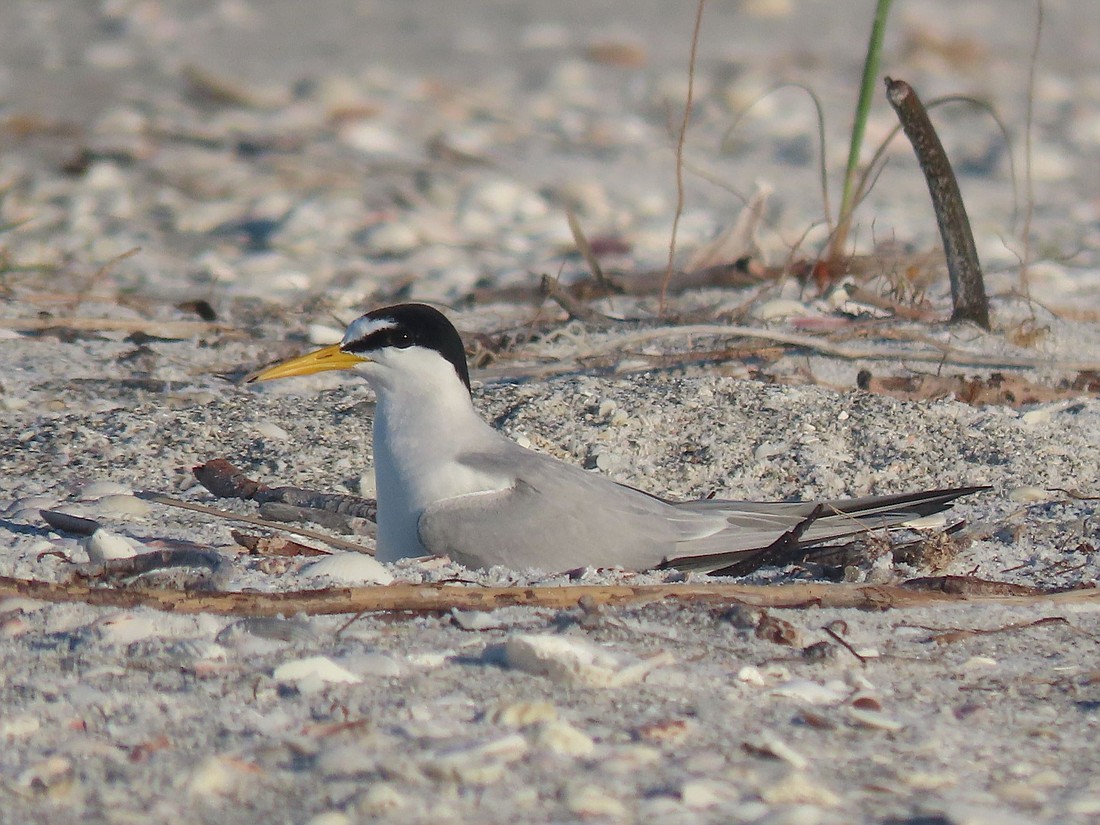- May 3, 2025
-
-
Loading

Loading

For the groups of least terns nesting on and around Longboat Key, the strategy is now “divide and conquer.”
Usually, the birds nest successfully on North Lido, though they nested at the site of the old Colony Beach & Tennis Resort and Whitney Beach in 2018. Least terns like the scrubby, wild, un-raked beaches of those specific spots. This year though, there are multiple small groups coming back to and pinning their hopes on the safety of Longboat Key.
“After a week, we had seven nests and 50 birds in total,” said Kylie Wilson, the shorebird stewardship and monitoring coordinator for Audubon Florida. “That was on Lido. But they abandoned. The crows got their eggs, and so now what I’m starting to see are these little mini groups nesting in random places … I had 50 nesting birds, so those birds must have split up and went to smaller groups.”
There are now six nests on Longboat Key, spread out along the northern end of the island. Five are in one group, but elsewhere, there’s one nest guarded by the parents, which concerns Wilson. These birds nest in colonies for a reason, and fewer adults mean more stress and potential predation from other birds like crows, which are drawn in by trash on the beach.
“I'm hoping that more terns will show up where the one bird has decided to nest because that is in the same area where they nested in the past, and maybe with the recruitment of some more pairs, they might be able to be successful there,” Wilson said.
There were some cat tracks where the single nest is, as well as some abandoned eggs, which makes Wilson think there were birds that tried to nest there and got scared off. Unfortunately, the same situation happened at Lido with one of the largest and most productive black skimmers colonies in the state: A cat went through and now all the birds have scattered. They moved farther north, but will have to start nesting all over again.
As for the existing tern nests on Longboat Key, Wilson is waiting with bated breath to see how the next few weeks go with both human and animal disturbances. Least terns take about three weeks to hatch, which puts the due date right around the big beach holiday of Memorial Day. If humans can stay settled down and take away beach trash, the birds have a better chance on the wild sands of northern Longboat.
“It's a really great beach for the birds because it's pretty natural and not too busy,” Wilson said. “As long as the space is natural, and it's not raked on a regular basis, the birds have a chance to settle down and start nesting.”